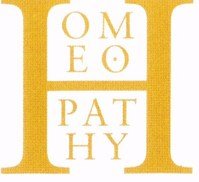Homeopathy in Bristol
Homeopathy in person
or via Zoom
About Homeopathy
Everyone can benefit from homeopathy. It is suitable for men, women and children. Despite their effectiveness, homeopathic remedies are gentle and safe enough to be used even for the weak and elderly or the very young. Because the amount of active ingredient is so small, they are also suitable and even desirable for pregnant women, unlike orthodox medicines. A list of some ailments commonly treated with homeopathy is included at the bottom of this page.
Animals can be treated on basically the same principles as humans, and can respond beautifully to homeopathic remedies.

ABOUT HOMEOPATHY - HOW HOMEOPATHY DIFFERS FROM CONVENTIONAL MEDICINE
Homeopathy is holistic
Homeopathy is a system of medicine based on stimulating the body’s own natural tendency to heal itself. It was first developed by a German doctor, Samuel Hahnemann, around two hundred years ago, and is nowadays widely used in many European countries, North and South America and India. It is estimated to have over 200 million regular users worldwide¹ A qualified practitioner has completed many years of study, and in some European countries homeopaths must also have orthodox medical training.
This means that what is treated is you the person as an indivisible entity, not each ailment in isolation. Homeopathy sees illness as a disturbance of some sort in the body’s natural dynamic equilibrium, and the aim of homeopathic treatment is to deal with and correct this disturbance by strengthening the body’s own healing mechanisms in the appropriate way. The disturbance itself can be physical, mental, emotional, or often a mixture of these. When the disturbance has been rebalanced, the symptoms it has been creating will disappear or be at least ameliorated.
If for instance you have depression, insomnia, and a skin rash, the homeopath will not give 3 different remedies, one for each problem, but will try through acquiring as complete a picture of you as possible to ascertain the true nature of the underlying dynamic disturbance. You will then be prescribed one remedy (or a succession of remedies one at a time) to act on this central disturbance and restore harmony in the functioning of the body. The symptoms diminish as harmony is re-established, regardless of what type of symptoms they are. In many cases what the patient reports, even before all the physical complaints have fully resolved, is an improved sense of general wellbeing.
Homeopathy is individualised
Since homeopathic remedies are selected to reflect the whole person, two people with the same orthodox diagnosis will frequently need a different homeopathic remedy from each other. A migraine sufferer who is also intolerant to milk products, apprehensive by nature and who tends to feel chilly is not at all an identical entity with a migraine sufferer whose personality is upbeat and ambitious, who suffers from insomnia and likes to have the windows open in the depths of winter. They might well be horrified if under normal circumstances you suggested that they were anything like each other, let alone identical with each other! So why should they be treated in an identical way? The overall picture they present is completely different, and although they do both suffer from migraine, a different remedy is required in each case to restore the body to its own individual harmony. Homeopathic remedies are therefore individually selected to match the individual in question.
Homeopathy is patient-friendly
Unlike orthodox (“allopathic”) medicines, homeopathic remedies are patient-friendly. While conventional medicine tries to counteract each symptom of an illness by attacking it head-on with the opposite effect, often with undesirable side effects or results, homeopathy works in co-operation with the body. It recognises that the symptoms of an illness are not random, but represent the body’s own attempts to correct whatever is wrong and restore balance. Fever, for example, is an effort by the body to destroy harmful entities.

Where a person is ill and does not get better, it is a sign that the body is not strong enough by its own efforts to throw the illness off. Homeopathic remedies are selected with the aim of boosting the body’s own resistance efforts so that the imbalance can be corrected and health (i.e. physical, emotional and mental harmony) restored. They do this by stimulating the body’s own attempts to re-achieve balance, using as a guide the symptoms which the body is emitting in its efforts to rid itself of the disease. An important feature of homeopathy is that the dosage should be the smallest possible required for the necessary stimulation.
Here are a few things that homeopathy is often used to treat - there are many more:
Depression - anxiety and panic attacks - phobias- stress - allergies - asthma -hayfever - bronchitis - colds and flu - migraines - headaches - skin complaints - viral infections - chronic fatigue - men's health problems - sexual problems - menstrual problems and PMS - hormonal problems - infertility - childhood diseases - children's behavioural problems - weak immune system - irritable bowel system (IBS) - liver and digestive problems - muscle and joint problems - back problems
